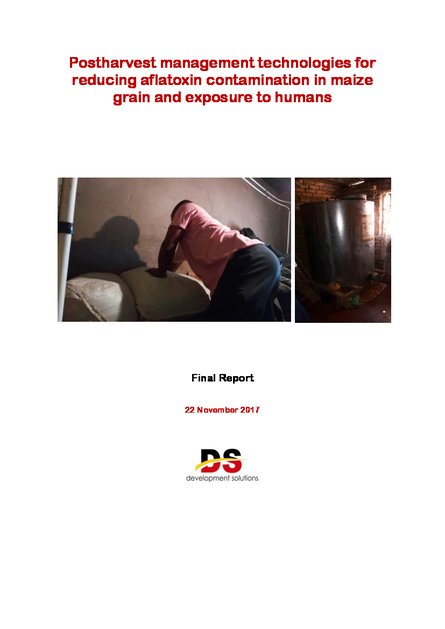
ACF and University of Zimbabwe led implementation of the postharvest management technologies for reducing aflatoxin contamination in maize grain and exposure to humans in two districts, Shamva and Makoni. In addition to maize, legumes (groundnuts, bambara, beans, and cowpeas) were a secondary focus of the project. The intervention was primarily a research project that aimed to investigate the efficacy of hermetic technologies to reduce aflatoxin contamination in maize grain. Its premise was the need to reduce the effects of chronic human exposure to aflatoxins whose metabolites are known to be carcinogenic, and undermine child growth and development, as children remain stunted, underweight, and more susceptible to infectious diseases in childhood and later in life.
The research employed a randomised control trial design that randomly distributed hermetic bags and metal silos to 120 and 150 maize farmers respectively. This group comprised the treatment group. A further 190 farmers who use conventional storage practices were enrolled as the control group. Tests on extent of Aflatoxin contamination were undertaken on samples of maize grains/cobs from the field and in storage at different points in time. Additional tests were conducted to measure the level of aflatoxin metabolites (mainly Aflotoxin M1) in pregnant and lactating women, and children under five. Samples of urine, blood, and breast milk were collected at local clinics for analysis.